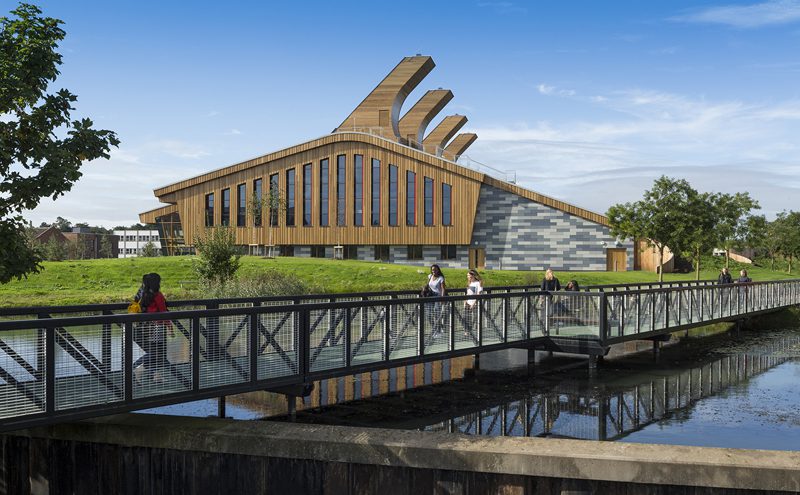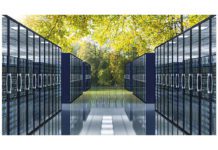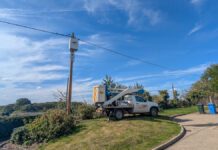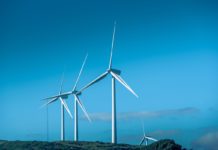
Nottingham University’s recently opened GSK Carbon Neutral Laboratories for Sustainable Chemistry has achieved BREEAM Outstanding and LEED Platinum certifications. It is seemingly one of the first buildings in the world to receive the highest certifications under both the BREEAM (Building Research Establishment Environmental Assessment Method) and the LEED (Leadership in Energy & Environmental Design) rating systems for green buildings. Global infrastructure services firm AECOM delivered the LEED and BREEAM services for the project, as well as mechanical, electrical, public health and structural engineering and computational fluid dynamics (CFD) modelling.
The centre, which was part funded by GlaxoSmithKline, includes the UK’s first carbon neutral laboratory, which is built from natural materials. The energy required to run the laboratory is delivered by renewable sources including solar power and sustainable biofuel. Excess energy created by the building means that over its lifetime it will offset all the carbon associated with its construction to achieve its carbon neutral status. The additional heat is being used by adjacent buildings on the university campus.
AECOM designed the building services to minimise energy use wherever possible, including the carbon neutral laboratory, which is naturally ventilated. Fresh air intake and exhaust air discharge are supplied and controlled via wind catchers, which are a prominent visual feature of the building. Other key features that helped the project achieve the Outstanding and Platinum certifications include a green roof that uses drought-tolerant native species and a water leak detection and prevention system that monitors potential issues. Sustainable Drainage Systems (SuDS) were integrated into the building’s design to minimise water run-off from the site.
AECOM worked with the university to set stringent sustainability targets at the conceptual design stage of the project. This early stage strategy guided the project team throughout The Centre’s development so that product specification and construction focused on low environmental impact over the full lifecycle of the building.
Matthew Butler, Associate Director, Building Engineering, AECOM said: “The GSK Carbon Neutral laboratories demonstrates that state-of-the-art laboratories and science facilities can still achieve world-leading standards for sustainability and energy efficiency. Nottingham University and the entire project team were committed to working towards BREEAM Outstanding and LEED Platinum from the outset, which was key to achieving the centre’s impressive green credentials.”
Professor Peter Licence, Director of the Centre at The University of Nottingham, said: “The GSK Carbon Neutral laboratories give us a unique opportunity to showcase state of the art, sustainable chemistry in a truly energy resilient environment.”
The GSK Carbon Neutral Laboratories for Sustainable Chemistry aims to be a catalyst for new industry collaborations and will focus on world-leading ‘clean and green’ research in sustainable chemistry. The centre will also act as a regional hub for chemistry education, giving local schools and colleges access to working laboratories and technical support.
BREEAM is the sustainability assessment method for masterplanning projects, infrastructure and buildings. Its assessment process evaluates the procurement, design, construction and operation of a development against targets that are based on performance benchmarks. The LEED rating system, developed by the US Green Building Council (USGBC), is the globally recognised building assessment and certification methodology for measuring sustainability and environmental performance. Achieving both LEED Platinum and BREEAM Outstanding establishes GSK Carbon Neutral Laboratories for Sustainable Chemistry as a market leader, providing both international and local recognition for its environmental performance. Dual certification also means the project’s basic build concept can be applied to future schemes and achieve relevant sustainability standards anywhere in the world.







